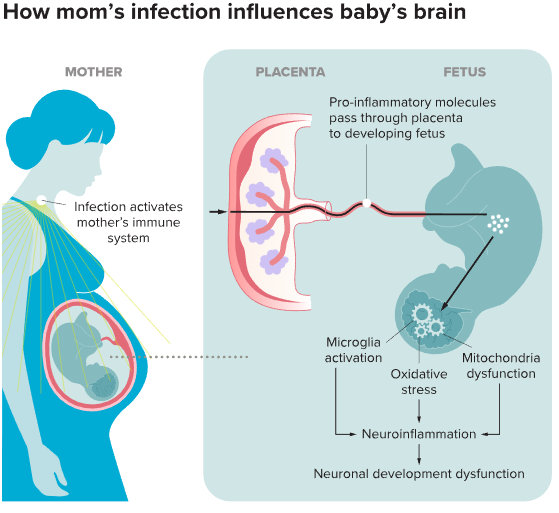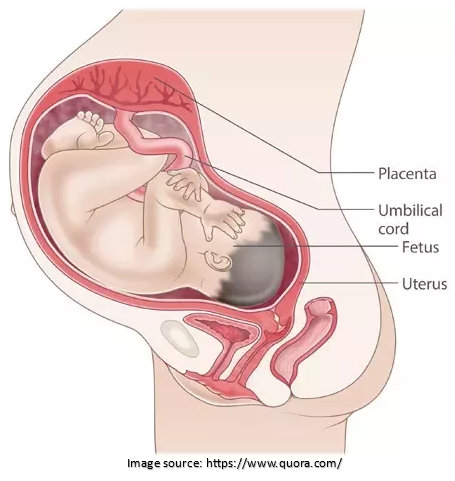Pregnancy is a complex physiological process that requires the body to adapt and change in numerous ways. One of the most notable changes during pregnancy is the significant modulation of the maternal immune system. In this blog post, we will explore the intersection of immunology and pregnancy, focusing on the immunological changes in pregnancy
Let’s understand how immune dysfunction can contribute to pregnancy complications and diagnostic tests and treatments for immunological infertility.
This modulation is necessary to support the growth and development of the fetus, which has a unique set of genetic material foreign to the mother’s body. However, this delicate balance between maternal immunity and fetal tolerance can sometimes go awry, leading to pregnancy complications.
It is essential to seek prompt medical attention from a qualified healthcare provider, such as a gynecologist or obstetrician, if you are experiencing any concerning symptoms or complications during pregnancy.
At Nisha Women’s Hospital, Dr. Himali Maniar, one of the best gynecologist in South Bopal, Ahmedabad, specializes in women’s reproductive health, including pregnancy and childbirth. She provides comprehensive evaluation and diagnosis of underlying conditions and recommends appropriate treatment options to ensure the best possible outcomes for you and your baby.
First, let’s know more about,
Immunology of Pregnancy

The immune system comprises a complex network of cells and molecules that identify and eliminate foreign substances, including pathogens, damaged cells, and cancerous cells. During pregnancy, the maternal immune system undergoes significant changes to accommodate the presence of the developing fetus.
Many different types of immune cells and molecules are involved in pregnancy, including T cells, B cells, natural killer cells, cytokines, and chemokines. These cells and molecules work together to create an immunological environment favourable to fetal growth and development.
One of the most notable changes during pregnancy is the increase in regulatory T cells (Tregs). Tregs are a type of T cell that plays a critical role in maintaining immune tolerance. They help to prevent the mother’s immune system from attacking the developing fetus by suppressing the activity of other immune cells that could recognize fetal antigens as foreign.

In addition to an increase in Tregs, there is a decrease in the activity of natural killer (NK) cells during pregnancy. NK cells are immune cells that recognise and eliminate infected or damaged cells.
However, excessive activation of NK cells during pregnancy can lead to problems with blood flow to the placenta. This can result in pregnancy complications such as fetal growth restriction and pre-eclampsia.
Now, let’s discuss about,
Immune Dysfunction and Pregnancy Complications
While the immune system adapts to promote a successful pregnancy, immune dysfunction can contribute to complications like recurrent pregnancy loss and pre-eclampsia.

Research in reproductive immunology has identified various immune-related factors that may contribute to these conditions, including autoimmune disorders such as systemic lupus erythematosus (SLE) and rheumatoid arthritis (RA), maternal-fetal histocompatibility, and immune activation.
Maternal-Fetal Immunology
During pregnancy, the maternal immune system must tolerate the presence of the developing fetus, which has a unique genetic material foreign to the mother’s body. Several mechanisms, like the placental barrier and regulatory T-cells, facilitate this process, which creates an immunological environment conducive to fetal growth and development.

Placental Barrier:
One of the primary mechanisms that contribute to immune tolerance during pregnancy is the placental barrier. The placenta is a physical barrier between the maternal and fetal circulatory systems, preventing the direct exchange of cells and molecules. This barrier helps prevent the mother’s immune system from recognizing fetal cells as foreign and mounting an immune response.
Regulatory T-cells:
Another critical mechanism contributing to immune tolerance during pregnancy is the activity of regulatory T-cells (Tregs). Tregs are a type of T cell that plays a crucial role in maintaining immune tolerance. They help suppress other immune cells’ activity that could recognize fetal antigens as foreign.
Tregs play an essential role in maintaining tolerance at the maternal-fetal interface. Studies have shown that the number of Tregs increases at the implantation site and is also present in the placenta throughout pregnancy.
Disruptions to Maternal-Fetal Immunology:
Disruptions to the mechanisms contributing to immune tolerance during pregnancy can lead to pregnancy complications and fetal growth restriction.
For example, if the placental barrier is compromised, fetal cells and molecules can cross into the maternal circulation, activating the maternal immune system and potentially harmful immune responses.
Similarly, disruptions to Treg activity can also contribute to immune dysfunction during pregnancy. For example, some studies suggest decreased Treg activity could contribute to developing pre-eclampsia. It is a pregnancy complication that leads to high blood pressure and damage to organs such as the kidneys and liver.
Now, let’s look at the,
Immunological Tests and Treatment in Pregnancy
“Immunological tests for pregnancy can play an important role in identifying potential risks and guiding treatment decisions”, says Dr. Himali Maniar a highly qualified and experienced lady gynecologist in Bopal, Ahmedabad. She performs several types of immunological tests that can be performed during pregnancy, including antibody screening and natural killer cell testing.
Antibody Screening:
Gynecologists can perform this test during pregnancy to determine if the mother has developed antibodies to specific antigens, such as the Rh factor or blood group antigens.
If the mother has developed antibodies to these antigens, it can lead to complications such as hemolytic disease of the newborn (HDN). In this disease, the mother’s immune system attacks the baby’s RBCs.
In these cases, treatment with immunoglobulin or other therapies may be necessary to prevent further harm to the developing fetus.
Natural Killer Cell Testing:
Another type of immunological test that doctors may perform during pregnancy is natural killer (NK) cell testing. NK cells are a type of immune cell that plays a role in killing infected or abnormal cells, including cancer cells.
In pregnancy, NK cells are thought to play a role in regulating the growth and development of the placenta. However, some studies suggest that increased NK cell activity may be associated with conditions such as recurrent pregnancy loss or pre-eclampsia.
As a result, NK cell testing has been proposed as a potential way to identify women at increased risk of these conditions. However, the use of NK cell testing for this purpose remains controversial, and more research is needed to determine its clinical utility.
Natural killer cell treatment in pregnancy involves using intravenous immunoglobulin (IVIG) and other immunomodulatory therapies to manage immune-mediated complications.
Immunotherapy:
Immunotherapy may sometimes treat conditions like recurrent pregnancy loss or pre-eclampsia. Immunotherapy refers to using medications or other treatments to modify the activity of the immune system.
For example, immunotherapy for recurrent pregnancy loss may involve immunoglobulin or other therapies to reduce the mother’s immune response and prevent further harm to the developing fetus.

Similarly, immunotherapy may reduce inflammation and prevent further damage to organs such as the kidneys or liver in cases of pre-eclampsia.
Other types of immunotherapies that may be used during pregnancy include corticosteroids or other medications that can help to reduce inflammation and regulate the activity of the immune system.
Let’s discuss,
Current Research and Future Directions
Research in pregnancy immunology is ongoing, focusing on better understanding the complex interplay between the maternal immune system and the developing fetus.
Some current areas of research include:
Immunomodulatory Therapies
Researchers are exploring the use of immunomodulatory therapies to help prevent or treat conditions such as pre-eclampsia or recurrent pregnancy loss.
Microbiome and Pregnancy Health
There is increasing interest in the role of the microbiome, the collection of microorganisms that live in and on the human body, in pregnancy health. Some studies suggest that changes in the maternal microbiome during pregnancy may contribute to conditions such as preterm birth or gestational diabetes.
Future research in this area may help to identify ways to manipulate the microbiome to improve pregnancy outcomes.
Personalized Immunotherapy
As our understanding of the maternal immune system and its role in pregnancy grows, researchers are exploring the potential for personalized immunotherapy. This approach involves tailoring immunological treatments to an individual woman’s immune profile, improving treatment efficacy and reducing side effects.
Non-Invasive Diagnostic Tools: Currently, most immunological tests for pregnancy require invasive procedures such as blood draws or amniocentesis. However, researchers are exploring the development of non-invasive diagnostic tools, such as tests that analyze maternal urine or saliva, to make testing easier and more accessible.
Conclusion
Pregnancy presents a unique immunological challenge for the body. The immune system undergoes significant changes during pregnancy to accommodate the presence of the developing fetus, and immune dysfunction can contribute to pregnancy complications.
Advances in our understanding of reproductive immunology, including the use of immunological testing and treatment, hold promise for improving pregnancy outcomes.
Future research in this field may lead to the development of personalized immunotherapy and non-invasive diagnostic tools, which could further improve pregnancy health.

